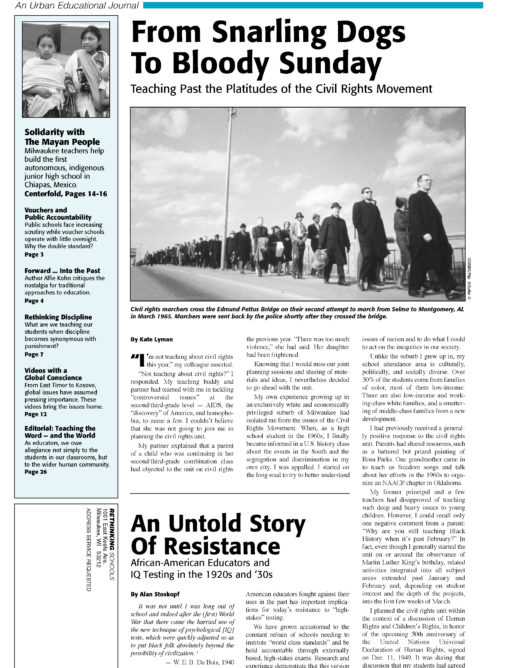Tips for New Groups
1. Start as a study group. Give yourselves an opportunity to know one another and to develop a common educational and political vocabulary. Figure out what you want and what you believe. Use short readings from books or periodicals such as Rethinking Schools.
2. Identify other teachers with similar philosophies and invite them to join your group.
3. Make sure your meetings have a social component. People want to have a good time and relax as they do political work. Our jobs are often alienating enough; politics should offer a refuge from alienation.
4. Work closely with teacher educators in your area. Offer to speak in their classes and lead workshops with their students. Seek out student teachers and invite them to participate in your activities.
5. Hook onto progressive education figures who might be speaking around town. Pass out leaflets at their events. Set up a table.
6. At every TGIF or event that you hold, make sure that everyone has a chance to speak – in pairs, small group discussions, or to the whole group.
7. If feasible, propose joint meetings with the teachers union. Some unions are looking for ways to deal with burning educational issues. Assume the best before writing people off.
8. Find “crossover” members who are connected to peace / justice / community groups – particularly groups that have large communities of color. Use these ties to foster working relationships. Go to their meetings; don’t assume they want to come to yours.
9. Don’t just call a meeting and hand out flyers. Talk to people face-to-face. Over and over again.
10. Provide child care. Even if parents don’t end up using it, knowing it’s there allows them to put the meeting on the calendar in the first place.

